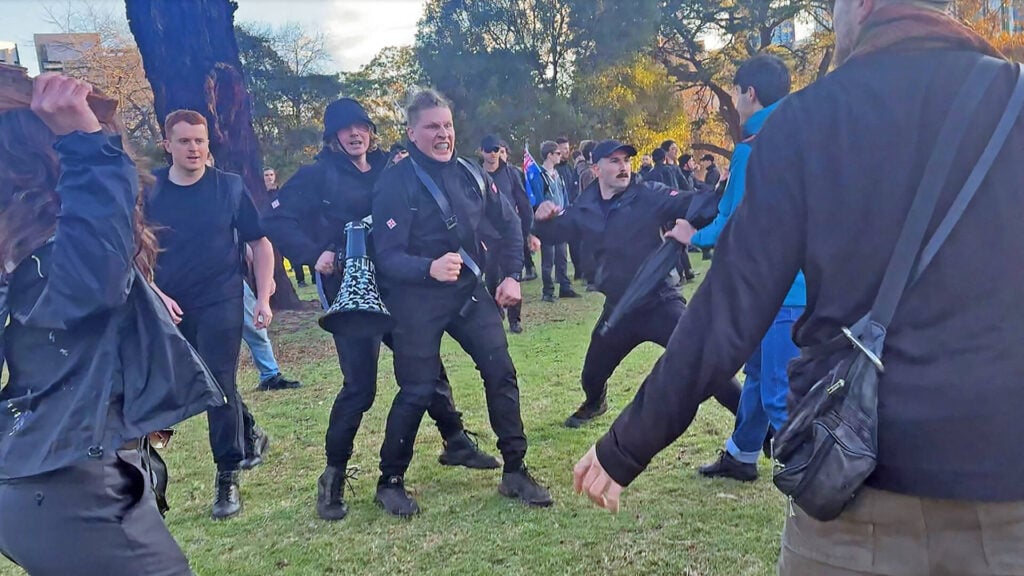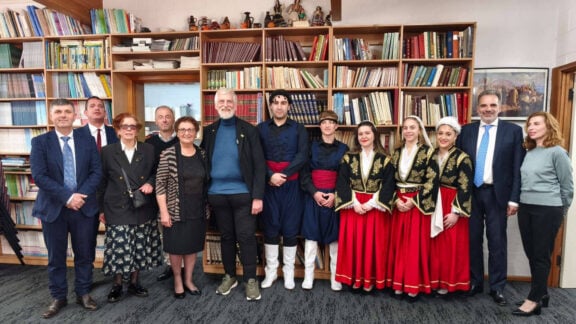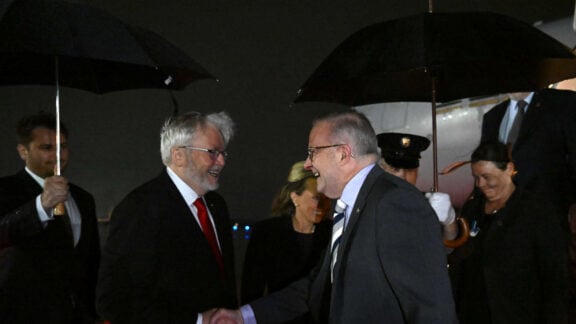The recent anti-immigration protests held in Australian cities serve as a troubling reflection of a society grappling with profound insecurity. A confident Australia that once prided itself on dynamism and outward vision appears increasingly to be turning inward, losing its sense of momentum, retreating behind walls of suspicion and recrimination. The disquiet they reveal is neither incidental, nor ephemeral. It speaks to a deeper malaise, a sense that the nation, rather than confronting the complexities of the present with courage and imagination, prefers to seek refuge in exclusionary certainties.
Historical precedent is clear. Progress is never realised through isolation. It is achieved only through the embrace of challenge, through the pursuit of innovation, and the cultivation of an outward-facing vision. Civilisations that retreated from the world have invariably stagnated, while those that sought engagement with the broader global landscape have forged the paths of advancement. The decline of Ming China after its withdrawal from maritime exploration, the self-imposed isolation of Tokugawa Japan, the fate of Eastern empires that turned their gaze inward rather than outward, are all cases in point.
Nonetheless, the fact that many descendants of immigrants, particularly from the Greek community, were to be found among the ranks of those protesting against immigration, should give us pause for thought. This is especially when we recall that the progressive Greek community in Australia played a significant role in the dismantling of the White Australia Policy, aligning itself with broader struggles for racial equality and multicultural recognition. To now champion anti-immigration sentiment appears not only a contradiction of our own historical experience but a retrograde step that undermines the gains of past generations. Equally concerning is the attempt by some of the protest’s supporters to co-opt the Greek and Italian communities into their narrative by juxtaposing our historical migration with that of newer arrivals from Indian or Muslim backgrounds. Such comparisons are not only simplistic, they are pernicious, for they suggest that communities can be graded upon a scale of legitimacy, with some considered worthy participants in the national project and others permanently suspect.
In their seminal Greek-language study From Foreigner to Citizen: Greek Migrants and Social Change in White Australia 1897-2000, George Vassilacopoulos and Tina Nicolacopoulou reveal the structural framework within which such narratives operate. They postulate that, despite the veneer of formal equality characterising race relations in this country, there lurks beneath the surface a fundamental concept: that of the perpetual foreigner.
Australian law, founded upon the sanctity of proprietary rights and the elevation of the individual, treats foreigners not as discrete individuals but as aggregated groups. Citizenship and residency may be conferred, but the recipients are not thereby subsumed into the liberal democratic paradigm of individual rights and responsibilities. Instead, they are compelled to remain a collective entity, perpetually expected to display visible signs of loyalty to the ruling culture, lest they be branded suspect.
This theoretical insight is grounded in historical example. Vassilacopoulos and Nicolacopoulou note that early Greek newspapers were closely monitored by the Australian Security Intelligence Organisation. They document how Greek-Australian citizens were treated as foreign nationals in various race riots, receiving compensation not as members of the national community but as outsiders. They remind us that Greeks were interned as politically suspect in camps prior to Greece’s entry into the First World War on the side of the Allies, regardless of their citizenship status.
Perhaps the most telling example they provide is the speech of the Lord Mayor of Melbourne at the opening of the first Greek Orthodox Church. Rather than commending the Greek community for its resilience, its cultural vitality, or its contribution to the diversity of the city, the Mayor praised Greeks for being hard-working, law-abiding, and obedient. In other words, they were celebrated not as independent participants in the life of the nation but as a loyal and trustworthy group, permitted to exist on condition of good behaviour.
Multiculturalism, with its promise of inclusivity and celebration of difference, appeared to mark a shift in this paradigm. The metaphor of Australia as a mosaic, or at times as a melting pot, suggested that the old Anglo-Celtic hegemony had yielded to a broader vision. Yet as Vassilacopoulos and Nicolacopoulou observe, the archetype remains stubbornly unchanged.
Ethnic communities have never been fully accepted in the popular consciousness as “Australian.” The term continues in common parlance to refer to those of Anglo-Celtic descent. Even the original custodians of this land are increasingly referred to as “First Peoples” rather than “Australians,” a terminological sleight of hand that preserves the exclusivity of the category. Ethnic groups, meanwhile, are continually called upon to prove their loyalist credentials, expected to distance themselves from any perceived deviance within their ranks, and reminded that their acceptance is conditional.
This, the authors argue, is the plight of the “eternal subversives.” No matter how many generations they have lived upon this soil, no matter how profound their contribution to its culture, they remain at the margins, orientalised, treated as other, or effaced altogether. The ruling class reserves to itself the right to determine which aspects of their identity are safe, which are acceptable, and which must be suppressed.
It is within this framework that the spectacle of descendants of immigrants protesting against immigration must be understood. Such participation reflects not a simple case of amnesia but the internalisation of the very mechanisms of exclusion that once marginalised their own forebears. The narrative of the perpetual foreigner conditions communities to prove their loyalty by distinguishing themselves from newer arrivals. In aligning themselves with exclusionary movements, they attempt to disavow their own otherness, to proclaim that they have crossed the threshold into acceptance, even if only by relegating others to the category they once occupied.
The attempt by protest supporters to draw comparisons between established Mediterranean communities and newer Indian or Muslim ones is part of the same logic. It re-inscribes the idea that legitimacy is conditional, that one earns acceptance through conformity, obedience, and loyalty to the ruling paradigm rather than simply being. It is a discourse of hierarchy and stratification, in which groups compete for validation by distancing themselves from the ever-present spectre of the suspect foreigner.
The Frankfurt School has long argued that societies in crisis project their anxieties onto scapegoated groups. When faced with economic, political, or cultural insecurity, communities seek the illusion of cohesion by identifying and excluding an “other.” This exclusion not only relieves internal tension but reaffirms the authority of the ruling class.
Postcolonial theory similarly illuminates the way ethnic communities are positioned within the national narrative. As Homi Bhabha and Edward Said have observed, the “other” is never granted full subjectivity. It is either fetishised as exotic or demonised as threatening, but never permitted to exist as simply itself. The perpetual foreigner exists in a liminal state, tolerated yet never fully accepted, celebrated only when convenient, condemned when expedient.
Significantly, what emerges with stark clarity in the present climate is that this theatre of exclusion rests upon a still deeper amnesia: the near-total forgetting of the First Peoples. Across the entire spectrum of politics, from left to right, progressives to nationalists, debate proceeds as if the violent seizure of this land, the dispossession of its custodians, and the appropriation of their sovereignty are matters of ancient irrelevance. The very foundation upon which arguments for or against immigration rest is the fiction that the sovereignty exercised here is uncontested and legitimate. In reality it is sovereignty unceded, sovereignty taken by force and never surrendered, what Patrick Wolfe has defined as the central logic of settler colonialism: a structure, not an event.
To ignore this fact is to perpetuate the most profound form of historical erasure. It is to act as if the debates over immigration, belonging, and loyalty can be conducted without reference to the original act of exclusion that defined this nation’s birth. The amnesia is not accidental. It is systemic. It allows the ruling classes to continue asserting their right to determine which migrants may be accepted, which must be marginalised, and which may never belong, while occluding the truth that their own presence rests on dispossession.
This silence is deafening. It echoes through the rituals of parliamentary acknowledgments, which speak of traditional custodianship in the past tense, as if recognition itself were sufficient to compensate for exclusion. It reverberates through the euphemism “First Peoples,” which subtly distinguishes them from “real Australians,” preserving the category of Australianness for the Anglo-Celtic settler. It persists in every discussion of immigration that fails to ask the most basic question: who truly holds the authority to decide who enters this land?
To carry on debates about immigration as if the original custodians have no voice is to perpetuate colonialism in its most insidious form. It is to re-enact the imperial mindset that denied their sovereignty in the first place, transforming them into symbolic presences while excluding them from substantive authority. It is to treat them as if they exist outside the polity, their rights suspended, their voice silenced, their sovereignty effaced.
If history teaches us anything, it is that societies which retreat into isolation and exclusion languish. They close themselves off to the currents of creativity and innovation that come with openness. They trap themselves in cycles of fear and recrimination. They ossify. Conversely, societies that embrace challenge, that look outward, that engage with the world in all its complexity, forge enduring legacies. The Greek city-states of antiquity that opened themselves to commerce, exchange, and cultural interaction flourished, while those that clung to insularity faded. The Australia that will thrive in the century to come will not be the one that hides behind barricades but the one that confronts the world with courage and confidence.
To achieve this, we must first confront our own history. We must acknowledge the structures of exclusion that persist beneath the rhetoric of equality. We must resist the temptation to validate ourselves by denigrating others. We must reject attempts to divide communities along fabricated hierarchies of worth. And above all, we must centre the voices of the First Peoples, recognising that any meaningful discussion of sovereignty must begin with them.









